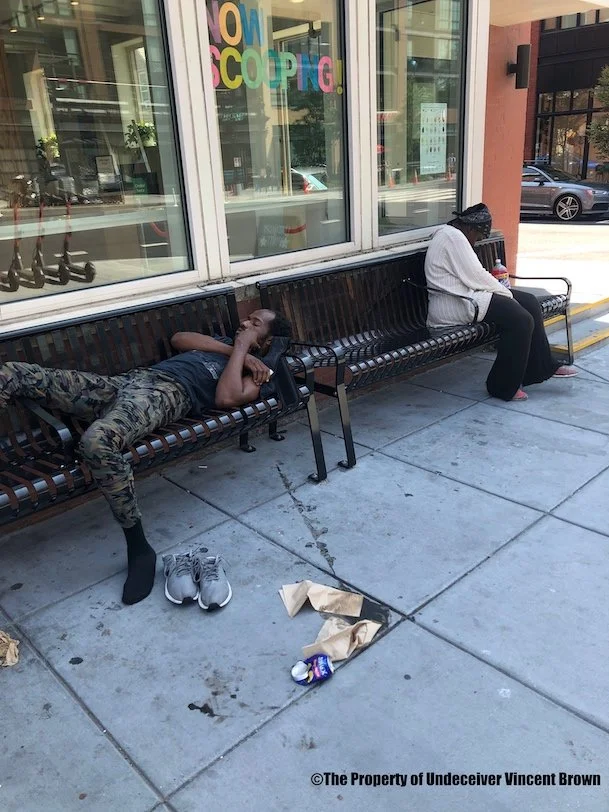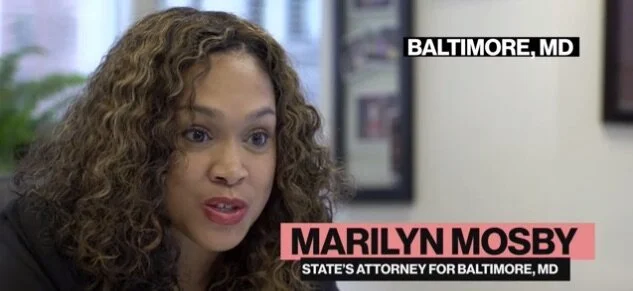[MeToo movement Used as a Tool of Racism White Supremacy] From [HERE] and [HERE] Former Cowboys receiver Michael Irvin held a news conference on Wednesday to address an incident involving a female hotel staffer in Arizona, which led to Irvin being sent home from Super Bowl coverage.
Irvin sued the Arizona Marriott hotel for $100 million in damages over the allegations. He has denied the allegations that he had any inappropriate physical conduct between him and the woman.
Irvin said in the press conference that this situation "sickens" him. He said it takes him "back to a time where a white woman would accuse a Black man of something and they would take a bunch of guys who were above the law, run in the ban and put a rope around his foot and drag him through the mud and hang him by the tree."
Irvin said he's been asked if he remembers the woman from the lobby, to which he replied that he meets so many people year-long staying in hotels.
"I couldn't even tell you what she looks like," Irvin said. "I don't even know who I'm talking about it. This just blows my mind that, in 2023, we're still dragging and hanging brothers by a tree."
Irvin said he still has not seen the tape of the alleged incident and does not know what he is being accused of. He said if he did something wrong, he'll suffer the consequences.
"But if you did something wrong, you meaning them, then they should suffer the consequences," Irvin said.
Two witnesses of the incident also spoke with reporters.
One was an Australian man who said he did not know who Irvin was because he's not an NFL fan and the Super Bowl was his first introduction to the sport. He said he met Irvin while doing business with his colleagues in the hotel lobby.
The other man said he did know who Irvin was, as an Eagles fan, but offered to buy Irvin a drink, which he refused.
Both men said they did not see any behavior from Irvin that was a cause for concern.
Irvin got emotional after listening to the two men give their accounts of the incident because he was thankful they were there and weren’t alone with his word versus his accuser.
ESPN said it had no comment on the legal developments in the case and the NFL Network did not respond to a request for comment.
In his lawsuit, which is filed in Collin County where he lives, Irvin's attorneys accused Marriott's employees and management of "inaccurately and inflammatorily" accusing Irvin of misconduct.
The lawsuit said Irvin had a "brief, friendly interaction with a Marriott employee lasting no longer than one minute" as he arrived back at the hotel Sunday night.
"Witnesses have verified that Mr. Irvin, casually exchanged pleasantries with one of the hotel employees, Mr. Irvin shook her hand, and went to his room alone," the lawsuit said.
The lawsuit said Irving "appreciates spending time with his fans," including taking pictures and talking with them, and that his interaction with the Marriott employee "was no different and witness testimony will prove this to be the case."
"Nonetheless, Marriott recklessly reported to the NFL that Mr. Irvin had somehow acted inappropriately even though in this brief interaction with multiple witnesses, nothing took place other than a friendly interaction that ended with a polite handshake," the lawsuit said.
In a legal response filed Wednesday, Marriott said it didn’t provide the video due to concerns it would reveal the identity of the woman and other guests if Irvin’s attorneys released it publicly.
The company’s attorneys said the order they were given didn’t require the video to be copied, but if the judge now orders a copy, they would ask that it not be shared publicly. They say they offered to allow Irvin to watch the video, but he declined.
The lawsuit also said Irvin then went upstairs to his room. After he fell asleep, he was "shockingly woken up" by security and removed from the hotel. WFAA reached out to Marriott for a comment on the lawsuit when it was filed and they did not respond.
Irvin's lawyer, Levi G. McCathern, previously told WFAA that his office had reached out to the hotel to talk about the situation but "they refused to speak to us." In the press conference, McCathern said Irvin's agent was eventually able to get a meeting with Marriott's GM and head of marketing. The head of security was not included in that meeting, McCathern said.
"They absolutely refused to give [Irvin's agent] any information about what the allegations were against Mr. Irvin," McCathern said.
Irvin and two other men, who were witnesses to the incident and part of Wednesday's press conference, were made available to Marriott for interviews and the hotel declined to speak with any of them, according to McCathern.
The press conference came one day after a judge ordered Marriott to provide Irvin “any and all video recordings, written reports, and/or witness statements gathered” that pertain to Irvin’s February visit at the Arizona hotel by March 7 at 5 p.m.
McCathern said he has seen the surveillance video, but was not allowed to have a copy of it. In a new court filing, Irvin's team filed for an emergency court order to obtain a copy of the video with a proposed deadline of the end of the day – 5 p.m. on March 8.
Since there was no copy of the video to show, McCathern gave his personal description of what the video entailed.
McCathern said the video shows Irvin being approached by the woman after taking pictures outside with some fans – the witnesses in the press conference – and the interaction between Irvin and the woman happens behind a pole in the center of the room. According to McCathern and the two witnesses, Irvin touches the woman four times: the introductory handshake, the handshake at the end of the interaction, once on the elbow and "brushes" her once on the other elbow after bowing over laughing.
McCathern said the woman is never seen in the video acting upset and doesn't back away from Irvin. The conversation between Irvin and the woman lasted about a minute and a half, McCathern said.
"This is what I'm struggling with," Irvin said. "You try to be an ambassador of the league and also understand that God has blessed me and given me a platform to try to touch people, try to raise people, try to lift people up. I've met a lot of fans. I've always tried to be good with people."





























































































































































































































































































